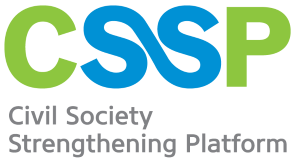Capacity-Building Training 2021
The two-day CSSP Capacity Building Training, “Strengthening the capacities of women’s CSOs and national stakeholders for policy advocacy, knowledge-based expansion and partnership facilitation on sexual violence in the Western Balkans and Turkey” was organized by the Civil Society Strengthening Platform (CSSP) to promote good practice standards in supporting victims of sexual violence, amongst women’s specialist support services supporting victims of sexual violence, other women’s CSOs (civil society organisations) as well as other relevant stakeholders such as policymakers.
The training took place from the 17th to the 18th of February, online, over the platform Zoom.
The aim of the training was to better prepare service providers in supporting victims of sexual violence, by promoting good practice standards already established by other countries but also in the Western Balkans and Turkey. The training was divided in two days, and was held online, over the platform Zoom. The two-day training welcomed 70 participants, including WAVE staff and six interpreters, from all seven partner countries: Albania, Bosnia and Herzegovina, Kosovo*, Montenegro, North Macedonia, Serbia, Turkey. The majority of participants attending were women’s CSOs, but also policymakers such as prosecutors, legal advisors, expert advisors working for different ministries.
The first day of the training focused on giving a general starting point for participants to get acquainted with good practice standards to be applied when supporting victims of sexual abuse. The first day of training was led by Dr Clíona Saidléar, Executive Director of the Rape Crisis Network Ireland (RCNI). The RCNI is a national specialist sexual violence NGO established in 1985 by rape crisis centres in Ireland, building evidence and expertise to represent survivors’ interests nationally and advocating for the best responses to sexual violence. RCNI works from the local to national level with survivors, stakeholders, and government. The first training day was focused on underlying the guiding principles of a survivor-centred approach. Dr Clíona Saidléar, as well as the other experts that have taken part to the training, have examined the elements of a holistic specialist sexual violence response and prevention, focusing particularly on the interagency collaboration and national coordination between the various stakeholders responsible for advocacy, support, justice, medical and forensic responses, and prevention. The first training day has included inputs from specialised NGOs, Sexual Violence Referral Centres (SVRCs), policing and the government alongside the current guidance and policies that define these various roles and responsibilities.
The second day of the training was focus on how the standards presented on the first day may be adapted into practise, and on presenting good practice standards already established by existing sexual violence centres in Serbia. The trainer for the second day was Biljana Stepanov, Director of the Centre for Support of Women (CSW), Rape Crisis Centres (RCC), Serbia. CSW is a civil society organisation established in 2004 whose goal is to improve the status of women and to contribute to achieving gender equality and equal opportunities for women, when it comes to policymaking at a local, national, and regional level. CSW provides specialised support services to women victims of violence, and organises various educational, promotional, advisory, research activities. Participants to the training were introduced to the working model of the RCC in Serbia, as a unique practice example that combines two types of services from two public protection systems, social and healthcare system, to fully protect women, victims of sexual violence. The last part of the training involved presenting the work practice of rape crisis centres.
The training objectives were to understand how to provide a holistic service approach by examining the underlying principles and standards when supporting victims of sexual violence (the Irish model) and to provide a complete understanding of the standards applicable and gaps encountered in specialist sexual violence service provision in the seven partner countries (the Serbian model).
The agenda and concept note of the training can be found here.
A full detailed report of the capacity building training can be found here.
